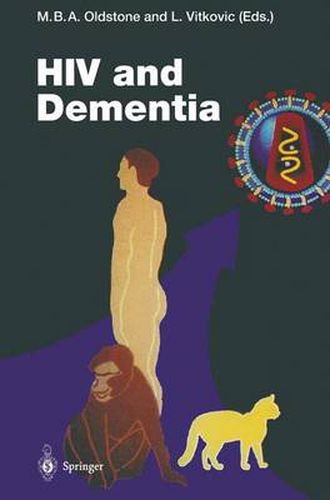Readings Newsletter
Become a Readings Member to make your shopping experience even easier.
Sign in or sign up for free!
You’re not far away from qualifying for FREE standard shipping within Australia
You’ve qualified for FREE standard shipping within Australia
The cart is loading…






This title is printed to order. This book may have been self-published. If so, we cannot guarantee the quality of the content. In the main most books will have gone through the editing process however some may not. We therefore suggest that you be aware of this before ordering this book. If in doubt check either the author or publisher’s details as we are unable to accept any returns unless they are faulty. Please contact us if you have any questions.
The National Institute of Mental Health (NIMH) AIDS Program is the fourth largest acquired immune deficiency syndrome (AIDS) program within the National Institutes of Health (NIH). Since 1983, our program’s contributions have concentrated on two major areas. The first has been to develop effective strategies to prevent or reduce behaviors that place individuals at risk for human immunodeficiency virus type 1 (HIV-1) infection. The second has been to support and foster research to enhance our understanding of the profound impact of H IV-1 infection on the central nervous system (eNS). The brain appears to be a prime target of the virus and may serve as a reservoir for the virus. Post mortem examination of brain tissue has provided evidence of eNS cell damage in 80%-90% of people who die with AIDS. For about 10%-20% of people with AI DS, mild neuropsychological symptoms are the first signs of the disease. Approximately 20% of individuals infected with HIV-1 develop AIDS dementia complex. The symptoms include apathy, difficulty concentrat ing, irritability, depression, and personality changes. In the later stages of the disease, people may experience psychiatric disor ders. Death usually occurs within 6 months of the appearance of those more severe symptoms. Up to 90% of children infected with H IV-1 experience attention and concentration difficulties and often experience neurodevelopmental delay or regression over time.
$9.00 standard shipping within Australia
FREE standard shipping within Australia for orders over $100.00
Express & International shipping calculated at checkout
Stock availability can be subject to change without notice. We recommend calling the shop or contacting our online team to check availability of low stock items. Please see our Shopping Online page for more details.
This title is printed to order. This book may have been self-published. If so, we cannot guarantee the quality of the content. In the main most books will have gone through the editing process however some may not. We therefore suggest that you be aware of this before ordering this book. If in doubt check either the author or publisher’s details as we are unable to accept any returns unless they are faulty. Please contact us if you have any questions.
The National Institute of Mental Health (NIMH) AIDS Program is the fourth largest acquired immune deficiency syndrome (AIDS) program within the National Institutes of Health (NIH). Since 1983, our program’s contributions have concentrated on two major areas. The first has been to develop effective strategies to prevent or reduce behaviors that place individuals at risk for human immunodeficiency virus type 1 (HIV-1) infection. The second has been to support and foster research to enhance our understanding of the profound impact of H IV-1 infection on the central nervous system (eNS). The brain appears to be a prime target of the virus and may serve as a reservoir for the virus. Post mortem examination of brain tissue has provided evidence of eNS cell damage in 80%-90% of people who die with AIDS. For about 10%-20% of people with AI DS, mild neuropsychological symptoms are the first signs of the disease. Approximately 20% of individuals infected with HIV-1 develop AIDS dementia complex. The symptoms include apathy, difficulty concentrat ing, irritability, depression, and personality changes. In the later stages of the disease, people may experience psychiatric disor ders. Death usually occurs within 6 months of the appearance of those more severe symptoms. Up to 90% of children infected with H IV-1 experience attention and concentration difficulties and often experience neurodevelopmental delay or regression over time.